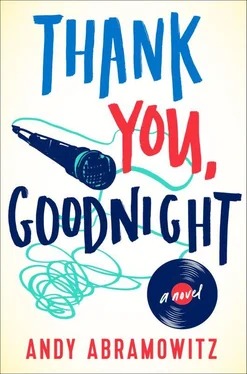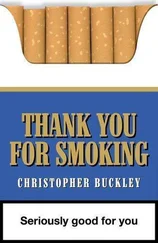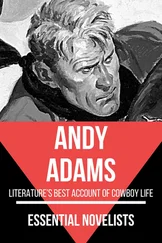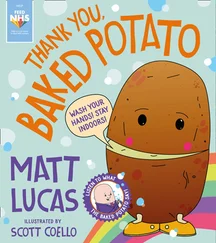
Thank You, Goodnight
by
Andy Abramowitz
You can outdistance that which is running after you, but not what is running inside you.
RWANDAN PROVERB
It’s later than it seems.
JACKSON BROWNE
PART ONE
THE VIEW FROM THE DISCOUNT RACK
You don’t need eight words to set someone’s life on fire. One seems like more than enough. But in my case, it was eight.
The cryptic text pinged from Sara’s phone onto mine just as I was taking to the sky. The flight attendants, annoyed at us before we’d even taken off, had just commanded us through harsh smiles to neuter our electronic devices. Concealing my phone beneath a vomit bag, I reread the message.
“Your legacy is hanging in the Tate Modern.”
Instantly irritated, I fired back a pageant of question marks. Sara’s timing meant eight hours of me staring out at the blackness of the North Atlantic, ruminating on this distracting message from my girlfriend instead of the work that awaited me in Dublin. I could never sleep on planes, certainly not while sharing an armrest with some decrepit bag of bones who was either dead or sleeping with one eye open, and now here was something else to keep me awake. When I landed, it would still be the middle of the night back in Philadelphia, which meant more hours of waiting to find out what Sara meant.
My legacy was hanging in the Tate Modern. Jesus fucking Christ.
In my previous line of work, a lifetime ago if not longer, I’d found Dublin to be hospitable, even welcoming of the happy ruckus that always accompanied me. Back then everyone welcomed me. Those were different times. Now I was almost completely someone else. Better rested perhaps, although the mirror in the airplane bathroom reflected otherwise—a miserable ghost, with bags of defeat hanging under my eyes. If I was any whiter I’d have been Mexican folk art.
* * *
The labyrinthine highways of life had somehow made a lawyer out of me. I’d never been particularly happy about it. To add insult to injury, for my latest assignment, I’d been dispatched to Ireland to take the deposition of some credit manager for a bank. I didn’t know what that meant other than that over the course of one interminable day, I was to sit in a conference room, a videographer’s microphone clipped to my bourgeois Brooks Brothers tie, and quiz some poor knucklehead about securitized financing transactions that neither he nor I had the vaguest interest in. This required preparation. What I needed to do upon landing was hunker down and immerse myself in loan agreements, guarantees, credit default swaps, a rotting forest of e-mails, and other documents of financial audacity, and then gin up several hours’ worth of questions to hurl at this paper pusher who, as far as I could tell, had committed the unpardonable sin of doing his job.
But here’s the thing: preparing for a deposition is about as exciting as my washer’s rinse cycle. After about a half hour in my hotel room, I slid into a sweater and headed out.
A comfortable chill hung in the Dublin air, fresh and restorative, good weather to lose myself in the dense blocks of timeworn Georgian buildings. I joined the midday flow of bodies coursing through the streets. I ate a salmon sandwich on a bridge arching over the Liffey. I sipped rich, black coffee outside the shops on Grafton Street. I bought Sara a book on Celtic mosaics that, despite being colorful—brightly colored art always feels like it’s trying to meet me halfway, kind of like poetry that rhymes—didn’t move me in the slightest. I waited to call her at just past dawn her time, hoping to catch her en route to her morning workout. “So, about that text,” I told her prerecorded voice. “Call me. The dep isn’t till tomorrow.”
I wandered into the maze of tourists bobbing and weaving through Temple Bar and found myself outside a lively little pub that beckoned me in with the sound of Irish music just beyond its rugged wooden door. Having always considered business to be an incidental component of a business trip, I barely paused before heading in.
The bartender raised his eyebrows solicitously, and I pointed to the Toucan Guinness tap. Soon I was savoring the dry stout, its creamy head on my upper lip, while a flute, guitar, and violin stirred the room into an accelerating whirl. A buxom young woman got up and began to bounce in place to the music. She was wearing pink jeans, a tight white button-down shirt, and a sloppy-drunk grin. The clapping and foot stomping spiked to a crescendo, and I overheard two frat boys with backpacks loudly admiring the buoyant girl’s “cans.”
A man down the bar was eyeing me. This still happened on occasion. He had unshorn hair urging toward dreadlocks and he sported those smoothly intellectual black-rimmed frames that sniffed of Clapton Unplugged . I was soon to learn he was a software salesman from Los Angeles. He peered at me for ten minutes—it was a little creepy—before coming over and telling me I looked familiar. He knew me from somewhere, he claimed, wagging his finger. I shrugged.
In declarative bursts over the music, he bitched about the rigors of business travel and whined about missing his kids. Yet when I coughed up the politeness to ask the ages of the aforementioned children, he was all stammers. He forgot how old his kids were. I didn’t think you did that. That said, there was a better-than-average chance that my own father could only offer an educated guess as to his boys’ ages. “Whoa, you kind of caught me off guard here,” the software salesman admitted with an embarrassed grimace. I couldn’t help but smile and feel a little bit like a happy man trapped in a bitter man’s body.
One day I’ll die, I thought to myself, and this will be one of the things I did with my time.
The Angeleno cocked his head. “Why is it you look so familiar? I know you from somewhere and I just can’t place it.” Since he’d found it difficult to place key statistics regarding his children, maybe remembering stuff just wasn’t his bag. “Are you in show business or something?” Show business. Like I’m waving jazz hands in a revival of Guys and Dolls .
The next thing I knew the conversation had careened off into all sorts of directions. He told me I should plan a trip to Polynesia. Why Polynesia? Because Tia Carrere—you know, that babe from Wayne’s World —is from Polynesia and that’s what all the women look like there. I asked him if he was really saying that every girl in this fabled land called Polynesia—which I don’t think is even a country—looks like Tia Carrere, and he gave me an ardent nod and said yeah, that’s right, that’s what I’m telling you. American men are considered exotic over there, he insisted, and those Tia Carrere look-alikes eat guys like us up. I told him I knew for a fact there’s no place in the world where they eat guys like us up. He sipped at his Bible-black beer, wiped his mouth, and said, “Trust me.”
A few moments later, as I stood absorbed in the wild soloing of a redheaded violinist, my new friend snapped and pointed at me. “Eight and ten!”
I stepped out of the bar three pints later. Shadows draped the narrow streets and the late-afternoon air had grown aggressively chilly. This day had been a poor excuse for a bender. The benders I used to have would eat this bender for breakfast.
I glanced at my phone and noticed I’d missed Sara’s call.
* * *
It looked quieter by the river, so I drifted through the stone alleys to the relative seclusion of a bridge. She answered in her office voice, soft and clandestine. It was close quarters at Bristol & Bristol Interior Design, which meant everyone could hear everything, and it was primarily populated with women, which meant everyone was listening.
Читать дальше













